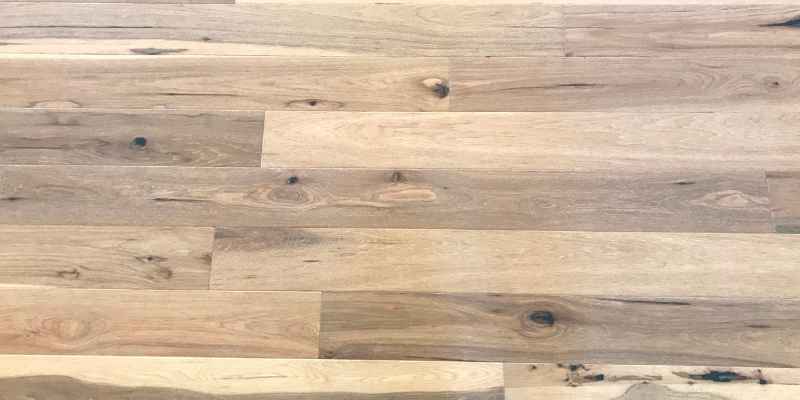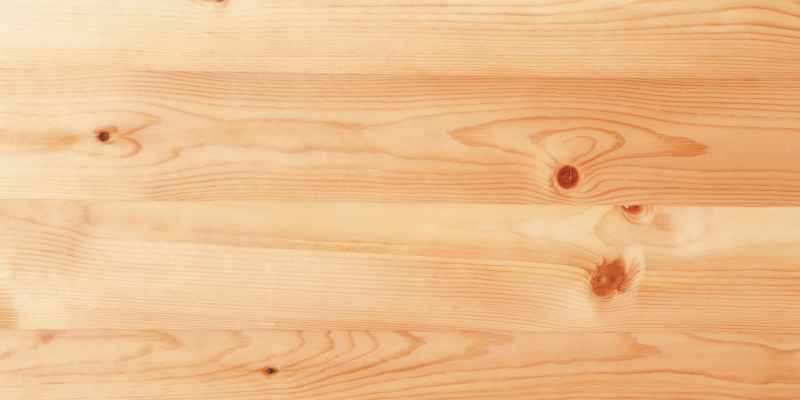Yes, Cypress is a type of hardwood. Cypress wood is highly regarded for its durability and strength, making it a popular choice for various construction and woodworking applications.
With its beautiful grain patterns and natural resistance to rot, insects, and decay, Cypress is an excellent choice for outdoor projects such as decks, siding, and furniture. The wood’s rich color and ability to take stains and coatings well further enhance its appeal.
Additionally, Cypress is known for its exceptional stability and water resistance, making it suitable for humid and wet environments. Whether you are looking for a durable material for your next woodworking project or a long-lasting option for your outdoor structures, Cypress hardwood is a great choice.
What Is Cypress Wood?
Cypress wood is known for its durability and natural resistance to decay. While cypress is technically a softwood due to its low density, it is classified as a hardwood for its strength and durability.
Cypress wood is a popular choice for various woodworking projects due to its durability, versatility, and unique characteristics. It comes from the cypress tree, primarily found in swampy areas of North America. This type of wood is known for its resistance to decay, making it suitable for both indoor and outdoor use. Cypress wood is often sought after for its exceptional strength, which allows it to withstand harsh weather conditions and resist insect damage.
Characteristics Of Cypress Wood
Cypress wood possesses several notable characteristics that set it apart from other types of wood. Firstly, it showcases a rich, reddish-brown hue that deepens over time, offering an aesthetically pleasing appearance. Additionally, cypress wood exhibits a straight and even grain pattern, which contributes to its exceptional workability. This type of wood is renowned for its stability and resistance to warping, shrinking, and splitting. These features make cypress wood an excellent choice for both construction and decorative purposes.
Types Of Cypress Wood
There are different types of cypress wood commonly used in woodworking projects. One popular variety is bald cypress (Taxodium distichum), which is primarily found in the southern United States. It boasts a fine texture and a pronounced grain, providing an elegant appeal to any project. Another variety is pond cypress (Taxodium ascendens), which shares similar characteristics but is often designated for use in submerged or partially submerged applications, such as boat building.
Some woodworkers also work with pecky cypress, which contains pockets of decay caused by a certain type of fungus. This unique feature, known as pecky or spalted wood, adds a distinct and rustic appearance to furniture, ceilings, and other decorative elements. It is important to note that while these variations exist, cypress wood, in general, maintains its overall durability and strength.
In summary, cypress wood is a hardwood that possesses exceptional qualities. Its resistance to decay, strength, and appealing appearance make it a sought-after choice among woodworkers. With a rich color and straight grain, cypress wood adds inherent beauty to any project. Whether you opt for bald cypress, pond cypress, or pecky cypress, you can expect a reliable and versatile wood that will stand the test of time.

Strengths Of Cypress Wood
Cypress wood possesses exceptional strength and durability, making it a popular choice for various applications. Despite being technically classified as a softwood, cypress exhibits hardwood-like qualities, making it an excellent option for furniture, flooring, and outdoor structures.
Natural Durability
Cypress wood is renowned for its natural durability, making it an excellent choice for various outdoor applications. Its inherent resistance to damage from environmental factors allows it to stand up to different weather conditions, retaining its strength and integrity. Whether exposed to rain, snow, or extreme heat, cypress wood remains stable and resistant to warping or shrinking.
Resistance To Decay And Insects
One of the key strengths of cypress wood is its remarkable resistance to decay and insects. Due to its high natural oils content, cypress wood acts as a natural deterrent for rot and decay-causing organisms such as fungi and bacteria. This makes it an ideal choice for outdoor projects like decking, fences, and siding, where exposure to moisture and insects is common. Additionally, cypress contains a natural chemical compound called cypretine, which repels termites and other wood-boring insects, keeping your structures safe and intact for years to come.
Longevity And Low Maintenance
When it comes to longevity and low maintenance, cypress wood excels as well. Its natural resistance to decay and insects means that it requires minimal upkeep compared to other types of wood. This reduces the need for frequent staining, sealing, or painting, saving you both time and money in the long run. Additionally, cypress wood has a long lifespan, allowing you to enjoy its beauty and durability for many years without worrying about replacements or extensive repairs.
Aesthetic Appeal
Besides its impressive strength and durability, cypress wood also boasts a rich and distinctive appearance, adding aesthetic appeal to any application. It features a reddish-brown heartwood that darkens over time, creating a warm and inviting look. Its grain pattern is often straight, giving it a sleek and elegant appearance. Whether used in interior or exterior settings, cypress wood adds a touch of natural beauty and sophistication to any space.
Environmental Sustainability
Choosing cypress wood also contributes to environmental sustainability. Cypress trees grow in abundance and are considered a renewable resource. Harvesting cypress wood from responsibly managed forests ensures its replenishment for future generations. Furthermore, cypress wood does not require harsh chemical treatments due to its inherent resistance, making it an eco-friendly choice compared to chemically treated wood alternatives.
Advantages Of Using Cypress Wood
Cypress wood is a popular choice for various applications due to its numerous advantages. This is a durable and versatile hardwood that offers an attractive appearance while being environmentally sustainable.
Versatility In Applications
Cypress wood is highly versatile and can be used in a wide range of applications. Its durability makes it suitable for both interior and exterior projects. From flooring and walls to furniture and outdoor structures, cypress wood can withstand various weather conditions and resist rot, decay, and insect damage.
Attractive Appearance
One of the main advantages of cypress wood is its natural beauty. It has a distinct grain pattern and rich color variations, ranging from light yellow to reddish-brown. The wood can be left untreated to showcase its natural aesthetics, or it can be stained or painted to match different design styles. Its charming appearance adds warmth and character to any space.
Environmental Sustainability
Using cypress wood also contributes to environmental sustainability. Cypress trees are known for their fast growth rate, which allows for a renewable source of wood. Additionally, cypress wood is often sourced from responsibly managed forests, ensuring minimal impact on the environment. Choosing cypress wood helps to reduce the demand for other less sustainable wood options.
In conclusion, cypress wood offers a range of advantages including its versatility in applications, attractive appearance, and environmental sustainability. Whether you are designing a new home, renovating an existing space, or embarking on a DIY project, cypress wood is an excellent choice that combines beauty, durability, and eco-friendliness.
Uses Of Cypress Wood
Cypress wood is a popular choice for a variety of applications due to its unique characteristics and durability. Its versatility and natural resistance to decay make it suitable for both indoor and outdoor projects. Let’s dive into some of the common uses of cypress wood:
Building And Construction
Cypress wood is commonly used in building and construction projects, thanks to its exceptional strength and stability. Whether it’s for framing, flooring, siding, or roofing, cypress wood is a reliable option. It is dimensionally stable, meaning it is less likely to shrink, warp, or cup over time. This makes it an ideal choice for areas with high humidity or fluctuating temperatures.
Furthermore, cypress wood’s natural resistance to decay and insect damage makes it suitable for outdoor structures like gazebos, pergolas, and fences. It can withstand harsh weather conditions without deteriorating, ensuring longevity and durability.
Furniture And Cabinetry
Cypress wood’s attractive grain pattern and rich color make it an excellent choice for furniture and cabinetry. Whether it’s for traditional, rustic, or modern designs, cypress wood adds warmth and character to any piece. Its natural oils give it a smooth texture, making it easy to work with and finish.
From dining tables and chairs to cabinets and shelving units, cypress wood furniture blends seamlessly with different aesthetic styles. Its durability ensures that furniture pieces crafted from cypress wood can withstand the wear and tear of everyday use, making it a wise investment.
Outdoor Applications
In addition to building structures, cypress wood is widely used for various outdoor applications. Its natural resistance to rot, decay, and insect pests makes it an excellent choice for decking, outdoor furniture, and even boat construction. Whether you’re creating a beautiful outdoor seating area or a sturdy boat, cypress wood delivers exceptional performance.
Furthermore, cypress wood is often used for outdoor raised garden beds and landscaping projects. Its natural resistance to moisture and decay ensures that it will withstand the elements while maintaining its beauty over time.
Overall, the uses of cypress wood are vast and varied. Its versatility, durability, and aesthetic appeal make it a preferred choice for builders, furniture makers, and outdoor enthusiasts alike.

Maintaining And Caring For Cypress Wood
Cypress wood is valued for its natural beauty, durability, and resistance to rot and pests. In order to extend the lifespan of your cypress wood and keep it looking its best, proper maintenance and care are essential. By following a few simple steps, you can ensure that your cypress wood remains in excellent condition for years to come.
Cleaning And Protection
Regular cleaning is key to maintaining the appearance of your cypress wood. Start by removing any loose dirt and debris using a soft brush or broom. To wash the wood, mix a mild solution of soap and water. Scrub the wood gently with a soft cloth or sponge, being careful not to scratch its surface. Rinse with clean water and allow it to dry completely.
To protect against stains and discoloration, it is recommended to use a cypress-specific wood sealant or oil. These products provide an extra layer of protection and help maintain the wood’s natural color. Apply the sealant or oil according to the manufacturer’s instructions, making sure to cover all exposed surfaces evenly. Allow sufficient drying time before using or placing any objects on the wood.
Preventing Moisture Damage
Cypress wood naturally contains oils that make it resistant to water damage. However, proper precautions should still be taken to prevent excessive moisture exposure, which can lead to warping, cracking, and decay. When using cypress wood outdoors, ensure proper drainage to avoid the accumulation of water. If using cypress wood indoors, maintain a stable humidity level to prevent moisture buildup.
Regularly inspect your cypress wood for signs of moisture damage, such as discoloration, mold, or mildew. If any issues are detected, address them promptly to prevent further deterioration. In case of minor damage, sanding and refinishing the affected area may be sufficient. For more severe damage, it is recommended to consult a professional for proper repair.
Summary
Maintaining and caring for cypress wood is relatively straightforward, as long as you follow a few simple steps. Regular cleaning and protection, along with prevention of moisture damage, will help ensure that your cypress wood remains beautiful and durable for many years to come.
Conclusion
Cypress is indeed a hardwood that is highly valued for its durability, beauty, and resistance to rot and insects. Its versatility makes it suitable for a wide range of applications, from furniture and flooring to outdoor constructions. Whether you’re a woodworker or a homeowner looking for a reliable material, cypress offers an excellent choice that will stand the test of time.


